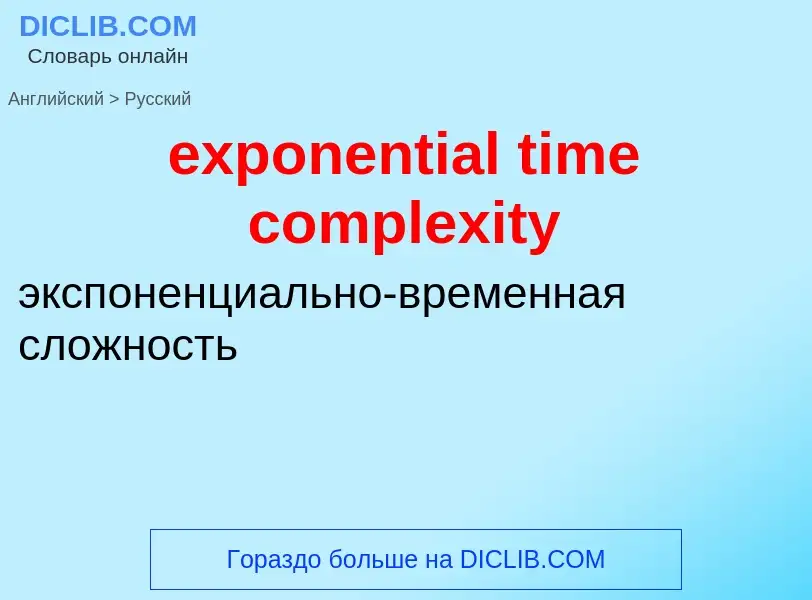ترجمة وتحليل الكلمات عن طريق الذكاء الاصطناعي ChatGPT
في هذه الصفحة يمكنك الحصول على تحليل مفصل لكلمة أو عبارة باستخدام أفضل تقنيات الذكاء الاصطناعي المتوفرة اليوم:
- كيف يتم استخدام الكلمة في اللغة
- تردد الكلمة
- ما إذا كانت الكلمة تستخدم في كثير من الأحيان في اللغة المنطوقة أو المكتوبة
- خيارات الترجمة إلى الروسية أو الإسبانية، على التوالي
- أمثلة على استخدام الكلمة (عدة عبارات مع الترجمة)
- أصل الكلمة
exponential time complexity - ترجمة إلى الروسية
- algorithmic complexity
- arithmetic complexity
- cipher-breaking complexity
- circuit complexity
- combinational complexity
- communication complexity
- computational complexity
- correlation-immunity complexity
- cryptoanalitic complexity
- deterministic complexity
- exponential complexity
- exponential time complexity
- first order complexity
- functional complexity
- information-based complexity
- intractable computational complexity
- Kolmogorov complexity
- linear complexity
- maximal order complexity
- multiplicative complexity
- polynomial complexity
- polynomial time complexity
- quadratic complexity
- second order complexity
- software complexity
- space complexity
- state complexity
- stochastic complexity
- structural complexity
- time complexity
- time-space complexity
- worst-case complexity
- Ziv-Lempel complexity
ويكيبيديا
In computational complexity theory, a complexity class is a set of computational problems of related resource-based complexity. The two most commonly analyzed resources are time and memory.
In general, a complexity class is defined in terms of a type of computational problem, a model of computation, and a bounded resource like time or memory. In particular, most complexity classes consist of decision problems that are solvable with a Turing machine, and are differentiated by their time or space (memory) requirements. For instance, the class P is the set of decision problems solvable by a deterministic Turing machine in polynomial time. There are, however, many complexity classes defined in terms of other types of problems (e.g. counting problems and function problems) and using other models of computation (e.g. probabilistic Turing machines, interactive proof systems, Boolean circuits, and quantum computers).
The study of the relationships between complexity classes is a major area of research in theoretical computer science. There are often general hierarchies of complexity classes; for example, it is known that a number of fundamental time and space complexity classes relate to each other in the following way: NL⊆P⊆NP⊆PSPACE⊆EXPTIME⊆EXPSPACE (where ⊆ denotes the subset relation). However, many relationships are not yet known; for example, one of the most famous open problems in computer science concerns whether P equals NP. The relationships between classes often answer questions about the fundamental nature of computation. The P versus NP problem, for instance, is directly related to questions of whether nondeterminism adds any computational power to computers and whether problems having solutions that can be quickly checked for correctness can also be quickly solved.


